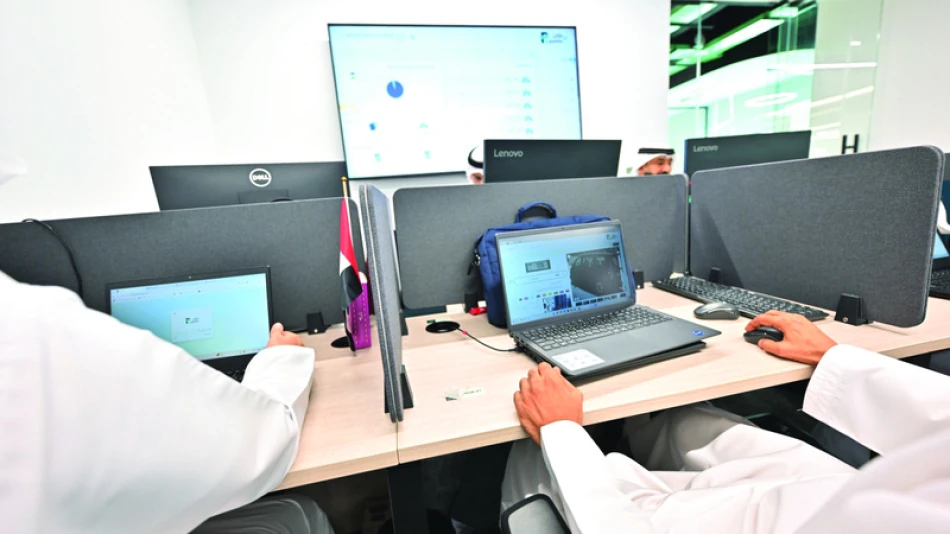
Flexible Tolling Eases Traffic Flow and Congestion, Says Muhammad Al-Ali
Dubai's Smart Parking Revolution: How Dynamic Pricing is Reshaping Urban Mobility
Dubai has quietly implemented one of the world's most sophisticated parking management systems, with nearly 40% of its public parking spaces now operating under dynamic pricing—a move that's fundamentally changing how residents navigate the city. With 79,700 spaces under flexible tariffs by mid-2024, Dubai is positioning itself as a global leader in smart city infrastructure while generating valuable lessons for urban planners worldwide.
The Scale of Transformation
Mohammed Abdullah Al Ali, CEO of Parkin, revealed that the dynamic pricing system now covers approximately 40% of Dubai's public parking inventory. This isn't a gradual rollout—it's a comprehensive transformation targeting the city's most congested areas where parking demand consistently outstrips supply.
The strategy focuses on peak hours, applying flexible rates during just 6 hours of the 14-hour operational window. This surgical approach maximizes turnover without penalizing off-peak users, a nuanced implementation that distinguishes Dubai's model from more aggressive pricing schemes seen in cities like San Francisco or London.
Market Response: Citizens Vote with Their Wallets
The most telling indicator of the system's impact lies in consumer behavior. Seasonal parking permits have surged 140%, with short-term monthly passes showing an extraordinary 171% annual increase. Even more striking, monthly permits covering zones B and D—typically premium commercial areas—jumped 282%.
This shift reveals sophisticated market adaptation. Rather than simply paying higher hourly rates, Dubai residents are making calculated decisions to lock in predictable costs through longer-term permits. The numbers speak volumes: 70,900 permit cards were purchased in Q2 2024, compared to just 29,500 in the same period the previous year.
The Behavioral Economics at Play
Overall parking utilization dropped from 25.7% to 22.7% year-over-year—a counterintuitive result that actually signals system success. The decline reflects users migrating from daily tickets to annual passes, particularly in high-demand zones B and D. This behavioral shift indicates that dynamic pricing is achieving its core objective: optimizing space utilization while providing cost-effective alternatives for regular users.
Technology as the Great Enabler
Dubai's approach distinguishes itself through digital integration. Parkin's mobile application offers seven integrated payment methods, automatic renewal features, and "pay later" options allowing five-day grace periods. The introduction of "free flow" technology in multi-story facilities eliminates physical barriers, while digital permits for disabled users replace cumbersome paper processes.
This technological sophistication mirrors successful implementations in Singapore and parts of the Netherlands, where seamless user experience has proven crucial for public acceptance of dynamic pricing models.
Global Implications for Urban Planning
Dubai's model offers a middle path between the aggressive congestion pricing seen in London and the more limited pilot programs in North American cities. By focusing on peak-hour optimization rather than blanket price increases, Dubai demonstrates how emerging economies can implement sophisticated urban management tools without triggering significant public backlash.
The 60-40 split between standard and premium zones provides flexibility while maintaining accessibility—a crucial consideration for cities balancing economic efficiency with social equity.
Investment and Infrastructure Perspective
For investors and urban technology companies, Dubai's success validates the market for intelligent parking solutions. The dramatic increase in permit purchases suggests strong revenue sustainability, while the behavioral data provides valuable insights for similar implementations across the Gulf region.
The integration of multiple payment systems and user-friendly technology creates a template that could be exported to other smart city initiatives, particularly in rapidly urbanizing markets where traditional parking management is reaching its limits.
Looking Forward: The New Urban Mobility Paradigm
Dubai's parking transformation represents more than operational efficiency—it's a fundamental shift toward data-driven urban management. By successfully changing user behavior while maintaining accessibility through permit options, the emirate has created a sustainable model that generates revenue, reduces congestion, and improves quality of life.
As cities worldwide grapple with increasing urbanization and limited space, Dubai's balanced approach to dynamic pricing offers a proven framework that prioritizes both efficiency and equity. The real test will be whether this model can maintain its effectiveness as the city continues its rapid growth trajectory.
Most Viewed News

 Sara Khaled
Sara Khaled






